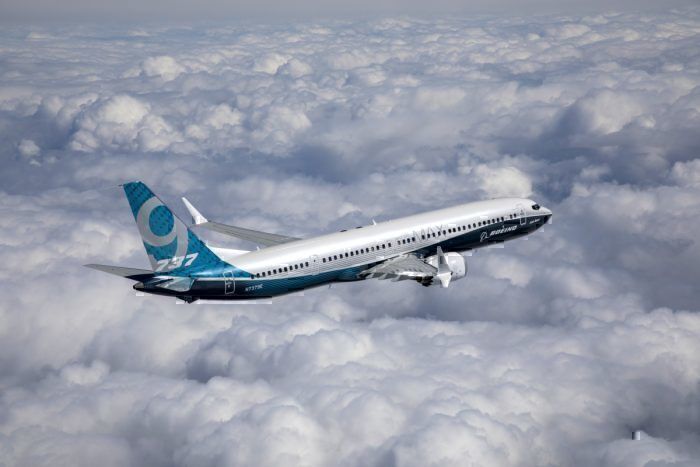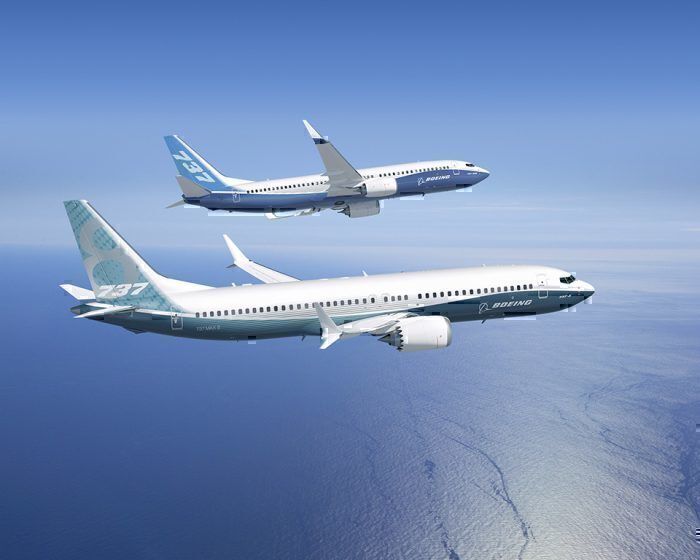Late last week the news broke that two Boeing employees had been instant messaging each other back in 2016, discussing potential problems with the manoeuvring characteristics augmentation system (MCAS) on the Boeing 737 MAX. Yesterday, Sunday 20 October 2019, Boeing issued its response to the latest 737 MAX kerfuffle.
Boeing says that the former employee who released the messages was referring to a simulator program that was not functioning properly and was still undergoing testing. Boeing notes that the former employee, Mark Forkner, a chief technical pilot who helped develop training and manuals, has since acknowledged this through his legal representatives.
The messages were exchanged over a short window of time one day whilst Boeing was working with the FAA in order to obtain the necessary safety certification to get the 737 MAX up into the air.
Boeing’s response yesterday
Boeing says the release of the messages has been unhelpful. In a statement, Boeing said;
“We understand and regret the concern caused by the release Friday of a Nov. 15, 2016, instant message involving a former Boeing employee, Mark Forkner, a technical pilot involved in the development of training and manuals. And we especially regret the difficulties that the release of this document has presented for the U.S. Federal Aviation Administration and other regulators.
It is unfortunate that this document, which was provided early this year to government investigators, could not be released in a manner that would have allowed for meaningful explanation.”
Contradictory reports regarding when the messages were given to the FAA
Late last week, media outlets began publishing reports suggesting Boeing knew the MCAS had problems as far back as 2016. These reports were based on the series of instant messages between Mark Forkner and Patrik Gustavsson, another technical pilot at Boeing. The media reports over the weekend argued that these messages indicated that Boeing knew about important safety concerns regarding the 737 MAX.
Mr Gustavsson messaged at the time that the MCAS was engaging “itself like crazy” and Mr Forkner suggested that he had lied to regulators. According to the weekend’s media reports, these messages were not provided to the Federal Aviation Administration until late last week. Boeing says the information was provided to the regulator earlier this year. However, a statement by the FAA says Boeing gave the FAA the heads up about the instant messages on Friday, 18 October 2019.
The FAA Administrator, Stephen Dickson, reportedly contacted Boeing’s Chief Executive, Dennis Muilenburg, asking for an explanation. The FAA has said;
“The FAA finds the substance of the document concerning. The FAA is also disappointed that Boeing did not bring this document to our attention immediately upon its discovery. The FAA is reviewing this information to determine what action is appropriate.”
Boeing’s statement is quite clear
The dispute is not over the existence of the instant messages. The dispute is over when the FAA was told. Boeing’s statement says quite clearly was provided earlier this year to government investigators. Boeing says;
“Boeing informed the FAA about the expansion of the Maneuvering Characteristics Augmentation System (MCAS) to low speeds, including by briefing the FAA and international regulators on multiple occasions about MCAS’s final configuration.
The process also included evaluation of MCAS in low-speed configurations for both training and certification. The simulator software used during the Nov. 15 session was still undergoing testing and qualification and had not been finalized, but it, too, provided for MCAS operation at low speed.
Separately, a low-speed version of MCAS was installed on the airplanes used for training-related flight testing that the FAA administered in August 2016. And FAA personnel also observed the operation of MCAS in its low-speed configuration during certification flight testing, beginning in August 2016 and continuing through January 2017.”
It has been a horror year for Boeing. Just last week Boeing told Simple Flying that it remained committed to getting the 737 MAX back in the air by the end of 2019. But since then, several airlines have taken the 737 MAX out of their schedules until February 2020, suggesting they do not share Boeing’s optimism.
Boeing’s trials and tribulations do not look like ending anytime soon.




